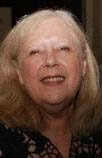Several teachers stopped by my table Saturday to purchase my book. Two of them asked me about my development as a writer, and I explained that every English teacher I had nurtured my obsession. This included professors in college, and poets after college as well. Early poetry workshops on the Internet also figured into my development as a poet. But the day came when I realized that I am not a very good poetry groupie. I like many different styles of poetry, from spoken word to language poetry, from formal to free verse. Poetry is abundant these days, with more poetry books being published and readings occurring in most cities several nights a week.
Another thing that is abundant these days is back-biting. I recall a reading where a woman who’d edited an anthology was on stage. She noted that purchases of the book would benefit charities. Another editor in the audience spoke up and declared the book worthless, in so many words. Ironically, that same editor later published, by means of a grant from a cultural institution, one of the poets in that anthology. What once was dubbed worthless suddenly became worthy in the convenience of the moment.
I’ve never understood mean-spiritedness in poetry. It seems so pointless and counter-productive. Once upon a time, I believed that networks were good for poetry, groups of poets supporting one another so that their work might find a broader platform. I don’t feel that way anymore. If anything, networks function as a counter-productive benefit. I believe they encourage an approach that rests on uniformity, and that a poet deeply embedded in a network will eventually refrain from taking chances.
Perhaps the popularity of networks is an offspring of the multitude of writing programs in America. It seems there’s one on every corner. And of course, many who opt to obtain an advanced degree end up teaching, because through that venue, one may obtain an NEA grant or perhaps a coveted prize, if one is affiliated with a major or even a marginal program. Try getting an NEA grant without an advanced degree.
Mentoring is still valuable, if there's one-on-one interaction, and if the mentor is willing to look beyond his or her own aesthetic. Some of the greatest poets I've met are very broad-minded individuals. But all writers eventually outgrow a mentor. There comes a point when, if you really care about the writing rather than publishing, you basically have to wing it.
William Packard once said, “You can’t lead a bunny life and write tiger poetry.” That resounds with me. Long ago, I chose to become self-employed, making a living by writing, because I knew any sort of official 9-5 writing job would drain me of the creative freedom I needed to do the writing I wanted to do. But there aren’t many people willing to give up comforts that come with frugal living and sacrifice. I got lucky. Things worked out well for me. But the early years were certainly no picnic.
Meanwhile, on the poetry workshop boards that once fostered camaraderie and derring-do, a poet trying something that veers from the aesthetic endorsed by a board isn’t likely to endear herself to the board’s community. I’ve seen some of the most small-minded comments imaginable in poetry workshops not only on the Net but also in major print journals. Some of those same journals insist they are “inclusive.” But when I read them—and I read a lot of them-- there is a sameness to the work, and much of that work is quite forgettable.
Poetry seems to have at times lost its self-respect. The result is back-biting and lack of support for work that may differ from one’s own. I don’t believe poetry has ever been more exclusive despite the fact that technology gives us the means to journey farther than any poets who’ve come before us. Poetry’s bite nowadays is louder than its bark. The result is a near-universal whimper.
Sunday, May 08, 2005
Subscribe to:
Post Comments (Atom)

No comments:
Post a Comment